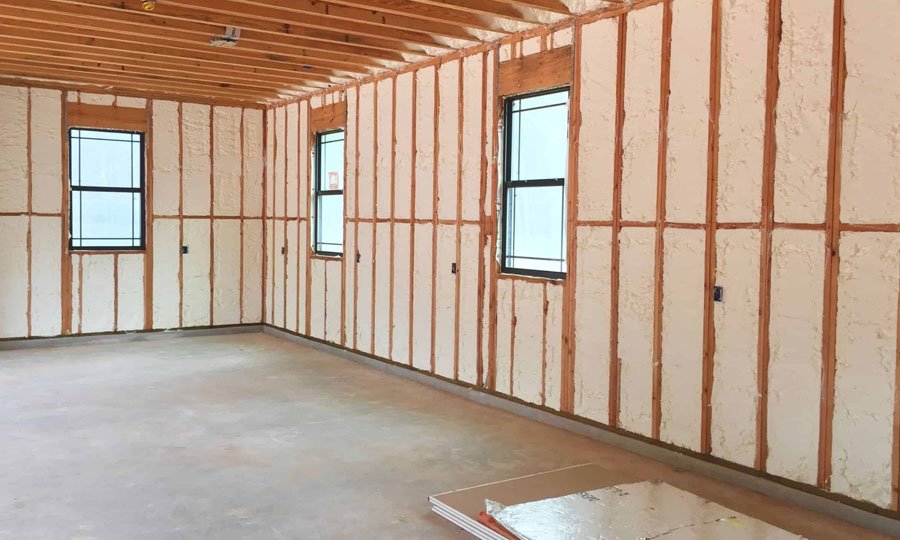Spray foam insulation is a kind of barrier that many homeowners use to ensure that spaces like ceiling cavities and walls are protected against unwanted air movements. Nowadays, this kind of insulation is part of many construction projects because of the energy efficiency and comfort it brings. Because of its increased use among many homeowners, numerous companies now offer this kind of service. For instance, Stellrr provides spray foam insulation in Austin, Texas. By contacting such a company, you can ensure that your home can benefit from all the advantages that come with spray foam insulation.
When using spray foam insulation, you can expect to enjoy the following benefits:
Table of Contents
Low Cost
Spray foam insulation is cheap compared to other forms of insulation. Using the wrong insulation material for a construction project can lead to unnecessary costs. Spray foam insulation is ideal because it is cheap. If properly done by qualified technicians, it is a very cost-effective way of ensuring energy efficiency. Its low costs are especially advantageous for large insulation projects. For example, commercial and industrial projects may require the insulation of large areas of a building. Spray foam insulation is cheap and ensures that such projects don’t turn out to be very costly.
2) Adaptable
Insulation can be tricky under certain conditions. For example, cellulose is also another common type of insulation material used in many buildings. However, cellulose insulation and others like it are susceptible to water damage. They tend to absorb moisture. Spray foam insulation doesn’t have such drawbacks. It continues to be dry years after its application. This characteristic makes it adaptable to many situations. Whether you want to insulate vertical or horizontal surfaces, nooks, or crawl spaces, spray foam insulation can easily be applied in all such areas with impressive results.
3) High R-Value
The R-value is a way of measuring an insulating material’s ability to resist heat flow. Heat flows by the processes of conduction, convection, and radiation. Conduction is the process responsible for heat movement between two or more solid surfaces. Convection involves heat transfer in liquid and gas media. The process of radiation ensures that heat moves in a straight line, hitting anything in its path.
All these methods of heat transfer affect a material’s R-value. By having a very high R-value, spray foam insulation is poor at transferring heat. This is a good thing if you’re trying to avoid excessive heat loss. Spray foam insulation is exceptionally good at keeping the internal temperatures of a building in which it is sprayed. This ensures that energy efficiency is achieved by avoiding unnecessary and excessive heat loss.
4) Environmentally-Friendly
For people that support environmentally-friendly practices, using spray foam insulation is one of those methods of promoting energy efficiency without harming the environment. Unlike other insulation materials, spray foam insulation does not contain fossil fuel elements like petrol. It contains significant portions of renewable materials. Additionally, applying spray foam insulation in your house does not release ozone, a toxic form of oxygen that’s harmful to the environment.
5) Being Airtight
If you’re looking to create an airtight seal in and around your house’s structures, spray foam insulation is the material to use. It can expand to cover all corners and tiny spaces that would otherwise be difficult to seal effectively. This is ideal for ensuring that unwanted heat transfer in and out of the house is avoided. By closing up all the tiny entry points through which air can pass, spray foam insulation promotes energy efficiency.
6) Resistance to Mold Growth
Unlike organic materials, spray foam insulation is not a source of nutrition for molds and pests like mice. Molds require damp conditions to proliferate. Given that spray foam, insulation does not absorb moisture, it significantly reduces the chances of mold infestation. Since molds cannot feed on spray foam insulation, it becomes impossible for them to attack an area where it has been applied.
7) Longevity
A crucial benefit of spray foam insulation is its longevity. With some types of insulation, you may need to replace or redo them every few years. Spray foam insulation that has been properly applied by a qualified professional can last indefinitely. It is not uncommon for spray foam insulation to last for decades on end. Of course, proper house maintenance also contributes to this.
8) Added Structural Robustness and Noise Filter
Unlike other insulation materials like fiberglass, spray foam insulation tends to add to a house’s structural integrity. For example, the racking strength of a building is its ability to resist compromise by elements like strong winds. Good racking strength contributes to a house’s structural integrity. Spray foam insulation is one of the few types of insulation that increases the racking strength of a building.
Ultimately, you can enjoy many benefits by choosing spray foam insulation over other types.










